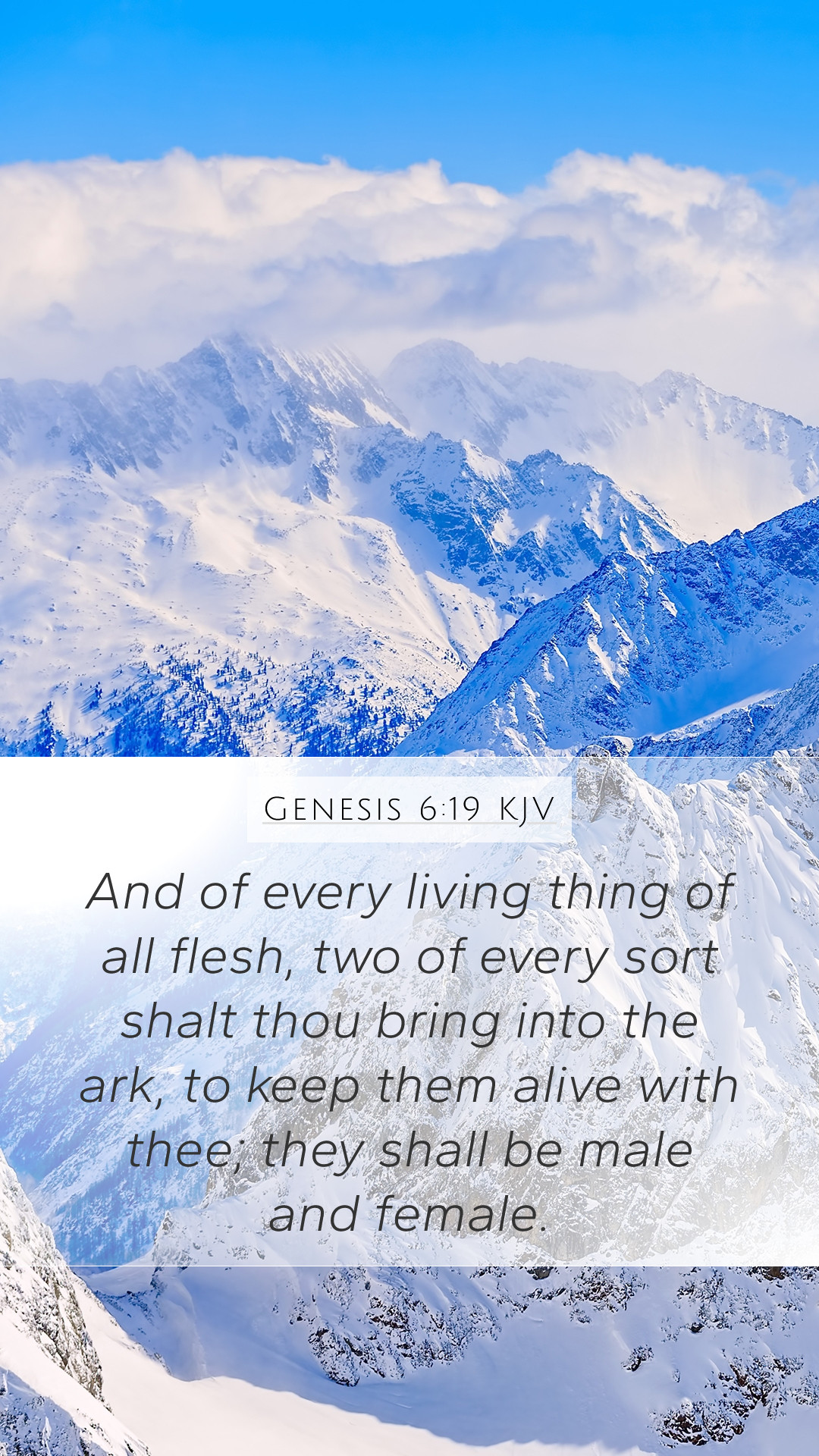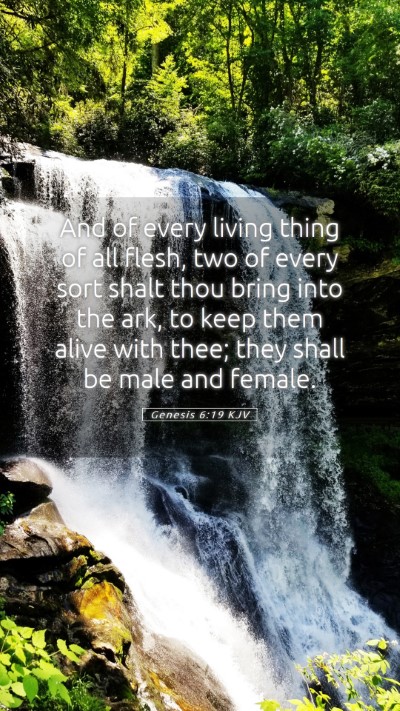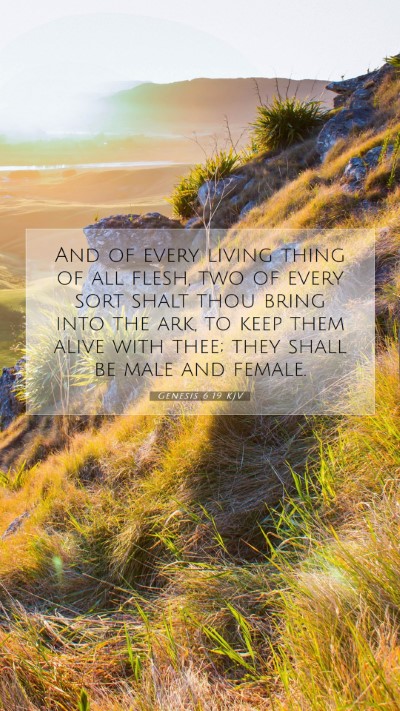Understanding Genesis 6:19
Genesis 6:19 states, "And of every living thing of all flesh, two of every sort shalt thou bring into the ark, to keep them alive with thee; they shall be male and female." This verse serves as a pivotal directive from God to Noah, emphasizing the importance of preserving life during the impending flood. Its implications span far beyond mere instructions; it encapsulates themes of divine provision, obedience, and the sanctity of creation.
Bible Verse Meanings
The meanings of Bible verses often intertwine with their historical and cultural contexts. Genesis 6:19 exemplifies this as it not only details God's command but also hints at His desire for the continuation of various species. The necessity of including pairs signifies balance in creation, which is a recurring theme in Scripture.
Bible Verse Interpretations
- Preservation of Life: Matthew Henry notes that this command underscores God's intent to preserve the diversity of life amid catastrophic judgment.
- Divine Instructions: Albert Barnes emphasizes the specificity of God's instructions, illustrating how crucial it was for Noah to adhere strictly to them.
- Symbolism of Pairs: Adam Clarke suggests that the male and female representation reflects God's ongoing covenant with creation.
Bible Verse Understanding
This verse offers profound Bible verse understanding by demonstrating God's active role in human affairs and His commitment to the created order. The careful selection of pairs for the ark signifies that every piece of creation has value and purpose.
Bible Verse Explanations
A detailed Bible verse explanation reveals the interplay between divine judgment and mercy. God’s decision to save Noah and his family, along with pairs of every kind of animal, illustrates a new beginning for the earth.
Bible Verse Commentary
This verse has been subject to varying Bible verse commentary viewpoints that reflect theological and practical considerations:
- Human compliance with divine directives evokes a sense of trust in God's plan.
- The inclusion of every kind of animal supports the idea of stewardship over creation.
Scripture Analysis
Through careful scripture analysis, one can appreciate the literary and theological structures present in Genesis. This verse not only records a command but serves as a transition point leading into the narrative of the flood.
Biblical Exegesis
An in-depth biblical exegesis of Genesis 6:19 reveals various layers of meaning, such as God’s desire for human and animal life to persist—which echoes throughout the Genesis creation narrative.
Bible Study Insights
For individuals or Bible study groups, exploring Genesis 6:19 can enrich Bible study insights into the character of God and humanity's role in creation.
Cross References
This verse resonates with several other scriptural passages that enrich its meaning. Related verses include:
- Genesis 1:20-25: The creation of animals signifies God's creative power and intention.
- Genesis 7:2: Further instructions regarding the clean and unclean animals highlight God’s concern for holiness.
- Proverbs 12:10: The righteous care for the needs of their animals, revealing a continual thread of stewardship in biblical thought.
Application of the Verse
In terms of applying Bible verses to daily life, Genesis 6:19 challenges believers to cherish and care for God's creation actively. This command serves as a paradigm for responsibility toward the environment and wildlife.
Conclusion
The richness of Genesis 6:19 goes beyond the surface narrative, inviting readers into deep historical context of Bible verses and prompting reflection on God's nature and human duty. For those seeking to derive meaning and application from Scripture, this verse stands as a compelling focal point.


